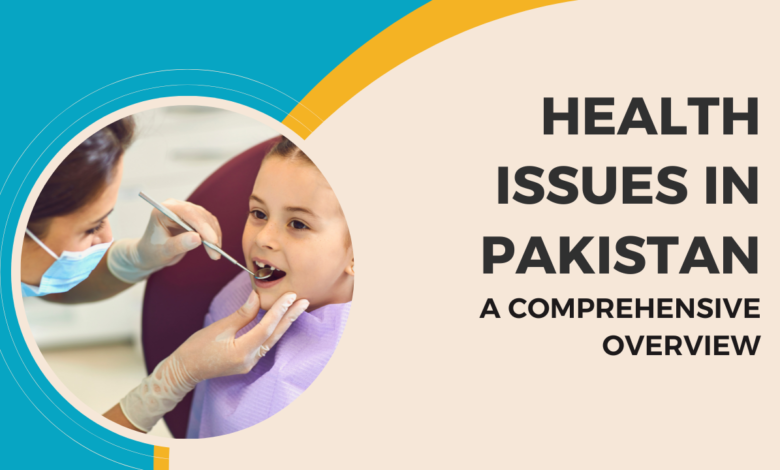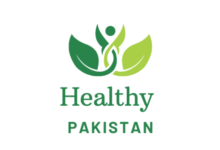
In recent years, Pakistan has grappled with a myriad of health issues that have posed significant challenges to its population. From inadequate healthcare infrastructure to rampant diseases, the country faces a complex web of health-related problems. In this article, we will delve into the various health issues that plague Pakistan, exploring the root causes, consequences, and potential solutions. Join us as we navigate through the intricate landscape of healthcare in Pakistan.
Table of Contents
- Introduction
- Inadequate Healthcare Infrastructure
- Prevalence of Waterborne Diseases
- Malnutrition and Stunted Growth
- High Infant and Maternal Mortality Rates
- Polio Eradication Struggles
- Mental Health Stigma
- Infectious Diseases: Tuberculosis and Malaria
- Non-Communicable Diseases on the Rise
- Inadequate Access to Clean Drinking Water
- Limited Access to Quality Education
- Overpopulation and Healthcare Pressure
- Healthcare Financing Challenges
- Government Initiatives and Their Impact
- Conclusion
Introduction
Pakistan, a nation known for its rich cultural heritage and diverse landscapes, also faces severe health challenges. These issues are deeply rooted in various socioeconomic factors, making it imperative to address them comprehensively.
Inadequate Healthcare Infrastructure
One of the foremost problems in Pakistan is its inadequate healthcare infrastructure. Hospitals and clinics, particularly in rural areas, often lack essential equipment, trained medical staff, and proper facilities. This deficiency contributes significantly to the challenges faced by the healthcare system.
Prevalence of Waterborne Diseases
Unsafe drinking water is a prevalent issue in Pakistan, leading to the spread of waterborne diseases such as cholera and hepatitis. Contaminated water sources, inadequate sanitation, and poor hygiene practices are common culprits.
Malnutrition and Stunted Growth
Malnutrition, particularly among children, remains a critical concern. Poor diet quality and lack of access to nutritious food contribute to stunted growth and long-term health consequences.
High Infant and Maternal Mortality Rates
Pakistan faces alarmingly high infant and maternal mortality rates, largely due to inadequate maternal healthcare, limited access to prenatal care, and unattended home births.
Polio Eradication Struggles
Despite global efforts, Pakistan still struggles with polio eradication. Misconceptions and misinformation have fueled vaccine hesitancy in certain regions, hindering progress.
Mental Health Stigma
Mental health issues remain largely stigmatized in Pakistan. Many individuals suffer silently due to societal taboos and a lack of mental health support systems.
Infectious Diseases: Tuberculosis and Malaria
Tuberculosis and malaria continue to be major public health concerns. Limited access to healthcare facilities and a lack of awareness contribute to the persistence of these diseases.
Non-Communicable Diseases on the Rise
Changing lifestyles and dietary habits have led to a surge in non-communicable diseases such as diabetes and cardiovascular conditions, further straining the healthcare system.
Inadequate Access to Clean Drinking Water
Millions of Pakistanis lack access to clean drinking water, leading to numerous health issues. Waterborne diseases and the economic burden of purchasing clean water take a toll on families.
Limited Access to Quality Education
A lack of education, especially among women, perpetuates health issues. Educated individuals are more likely to make informed healthcare decisions.
Overpopulation and Healthcare Pressure
Pakistan’s overpopulation places immense pressure on healthcare resources. Ensuring access to healthcare for all citizens is a significant challenge.
Healthcare Financing Challenges
Financing healthcare remains a challenge. The majority of Pakistanis lack access to health insurance, making healthcare expenses a significant burden on households.
Government Initiatives and Their Impact
The Pakistani government has initiated various healthcare programs and policies to address these issues. We’ll explore their impact and effectiveness.
Conclusion
In conclusion, Pakistan faces a multitude of health issues, rooted in complex socioeconomic factors. Addressing these challenges requires concerted efforts from the government, civil society, and international partners. A healthier Pakistan is not only essential for the well-being of its people but also crucial for its overall development.
FAQs
- What are the major causes of waterborne diseases in Pakistan?
- How is the government addressing the issue of malnutrition among children?
- What efforts are being made to combat the stigma surrounding mental health?
- Are there any successful healthcare models from other countries that Pakistan can adopt?
- What can individuals do to contribute to better healthcare in Pakistan?







